Table of Contents
ToggleIn the fast-paced world of accounting, juggling clients, deadlines, and spreadsheets can feel like a circus act—minus the applause. Enter CRM software, the unsung hero that can transform chaos into clarity. It’s like having an extra set of hands (or maybe even a personal assistant) to keep track of client interactions, manage tasks, and streamline workflows.
Overview of CRM Software
CRM software plays a crucial role in the accounting industry. Designed to enhance client relationships, it organizes essential information in one place. Accountants benefit from streamlined communication, allowing them to manage client interactions effectively. Task management features help professionals prioritize deadlines, ensuring timely responses to clients’ needs.
Many CRM systems provide automation tools that reduce repetitive tasks. For example, automated reminders for deadlines can minimize the risk of missing important dates. Integration with existing accounting software improves efficiency by syncing financial data. Such integrations simplify the flow of information, facilitating quicker decision-making.
Data analytics features in CRM software deliver valuable insights into client behavior. Tracking customer interactions helps accountants identify trends and tailor services accordingly. This approach strengthens client relationships, fostering loyalty and repeat business.
Cloud-based CRM solutions offer flexibility, enabling accountants to access information from anywhere. Remote access supports collaboration among team members, contributing to a cohesive work environment. Users can securely share documents and updates, ensuring everyone stays informed.
Regulatory compliance becomes more manageable with CRM software. Features that track communication history and document management provide accountability during audits. Consequently, accountants can maintain accurate records, enhancing their professional credibility.
Selecting the right CRM software involves considering specific business needs. Features, pricing tiers, and user support all influence this decision. By evaluating these factors, accountants can find the best solution to meet their unique challenges.
Key Features to Look For
CRM software significantly enhances an accountant’s workflow. Certain features stand out as essential for improving efficiency and client relations.
User-Friendly Interface
A clean, intuitive interface simplifies navigation for accountants. Users can easily access essential tools and features without extensive training. Dashboards that display important metrics at a glance promote quick decision-making. Less time spent figuring out the software means more time focusing on client needs. A responsive design allows access on various devices, making it convenient for those on the go.
Customization Options
Customization is vital for addressing specific business needs. Accountants can tailor fields and templates to align with client requirements. The ability to modify workflows creates a more personalized experience that enhances productivity. Custom reports help accountants highlight key metrics relevant to their practice. Enhanced adaptability ensures the CRM evolves alongside the growing business.
Integration Capabilities
Integration with existing accounting systems ensures seamless data flow. Software that connects with popular accounting tools prevents data entry duplication. Easy syncing of client financial data fosters accurate, real-time insights. Additionally, linking with communication platforms streamlines client interactions. Strong integration capabilities enhance overall functionality and promote a cohesive working environment.
Top CRM Software Solutions for Accountants
Numerous CRM software solutions cater specifically to the needs of accountants, each offering unique features tailored for the industry.
CRM Software A
CRM Software A stands out with its robust client management capabilities. This tool prioritizes communication through its centralized dashboard, which consolidates client interactions. User-friendly automation features streamline repetitive tasks, allowing accountants to focus on more strategic activities. Integration with popular accounting platforms ensures seamless data flow, making it easy to access vital financial information quickly. Data analytics tools offer insights into client behavior, enabling tailored communication strategies. Furthermore, secure document sharing enhances collaboration among team members, ensuring everyone stays on the same page during busy periods.
CRM Software B
CRM Software B excels in delivering customizable solutions for accountants. Accountants can modify workflows to align with their specific business processes. The software’s intuitive interface simplifies navigation, quickly guiding users through essential features. With advanced reporting capabilities, it allows for the creation of detailed financial reports, which can be generated on-the-fly. The platform also supports mobile access, providing flexibility for accountants on the go. Strong integration capabilities ensure compatibility with existing accounting systems. These features combined can significantly enhance productivity and organization in a hectic accounting environment.
CRM Software C
CRM Software C offers powerful automation tools designed for time management. This software efficiently schedules client meetings and sends reminders for important deadlines, reducing the risk of missed appointments. Customization options allow accountants to create tailored communication templates, maintaining professionalism in all interactions. In addition, robust client segmentation features facilitate targeted marketing efforts, which can help grow a practice. The software’s analytics dashboard provides real-time insights, enabling data-driven decision-making. Additionally, secure cloud storage protects sensitive information, ensuring compliance with data security regulations while enhancing collaboration across teams.
Pricing Comparison
Pricing for CRM software varies significantly based on features, user limits, and subscription models. CRM Software A offers a tiered pricing structure starting at $50 monthly for basic features. Additional tiers provide advanced functionalities, with costs reaching up to $150 monthly for premium options.
CRM Software B presents a flexible pricing model, beginning at $30 per user per month. This software accommodates small firms and scales to larger enterprises, ensuring user-friendly access regardless of budget constraints. For extensive features such as custom reporting and analytics, the price may increase to $120 monthly.
Conversely, CRM Software C employs a flat rate starting at $60 per month for unlimited users. Such pricing appeals to larger accounting teams who benefit from automation tools and collaborative features without per-user fees. Potential add-ons for advanced automation may increase overall costs by $20 monthly.
Accountants evaluating CRM software should not only consider initial costs but also weigh long-term value. Performance features and customer support also play a pivotal role in justifying the expense. When making decisions, comparing tool capabilities against pricing ensures that businesses select the best fit for their operational demands.
Each CRM software’s pricing reflects the features provided and the flexibility offered, aligning with varied client needs. Ensuring the right balance between functionality and cost can enhance client management and operational efficiency for accountants across diverse practice sizes.
Choosing the right CRM software can significantly impact an accountant’s ability to manage clients and deadlines effectively. With the right tools in place accountants can streamline their workflows enhance communication and maintain strong client relationships.
By evaluating the features and pricing of various CRM solutions accountants can find the perfect match for their needs. This not only boosts productivity but also ensures that they can focus on delivering exceptional service to their clients. Investing in a reliable CRM system is a step toward achieving greater efficiency and success in the accounting profession.






